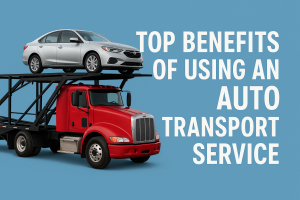Is shipping an electric or hybrid vehicle different from shipping conventional cars? Yes, and here are 6 best practices you should know to make sure they are shipped safely.
Key Takeaways:
- American drivers are making electrics and hybrids more popular than ever
- The need for shipping these alternative models will increase dramatically over the next 20 years
- Electric and Hybrids come with shipping risks
- Shipping these vehicles takes awareness of potential hazards and U.S. regulations
- Working with an experienced auto broker can help find the right carrier
Electric vehicles are certainly causing a buzz in the American auto market with a 75% increase in sales year-over-year and Bloomberg predicts 58% of global auto purchases to be electrics by 2040. Big names like Tesla, Toyota, and Volkswagen have all brought models to market in an attempt to provide more cost-effective and environmentally friendly transport.
Hybrids are also gaining popularity with more than 5 million models sold as of 2019 – the most recent data year available from the Bureau of Transportation statistics. Electrics and hybrids have a lot to be proud of, but they can pose serious dangers during transport.
This issue will become increasingly important for motorists in the years to come. This guide will highlight the built-in risks involved with any electric vehicle shipping and how to avoid them for a safer delivery.
Why electric and hybrid vehicles need extra care
The primary shipping oversight made by electric and hybrid owners is forgetting how combustible these vehicles can be. This is understandable where lithium-ion batteries are concerned because flames are more commonly connected with gas or petroleum-powered models. While the odds of a lithium-ion fire are low, overly hot or damaged/pierced electric batteries can be just as incendiary as their fossil-fueled cousins.
The damaging aspect is a vitally important consideration. This is because vehicles can undergo rough treatment during transport if the carrier is complacent or underqualified. The careful shipping of lithium-ion batteries of any size is governed by strict regulations in the U.S. that carriers must follow to safeguard the vehicle. Electrics and hybrids must be firmly secured to prevent any excessive battery motion or short circuits in transit.
Only auto carriers that have experience shipping electric vehicles have the tools to appreciate both the expense of the vehicles they’re handling and the fragility of their components. With the proper precautions, these models are no riskier to ship than gasoline or diesel car — provided both the carrier and the customer do the right things.
6 Steps to safe electric vehicle shipping
Hybrids and electrics are special vehicles that aren’t cheap. Even the most affordable model on the market costs upwards of $30,000. Taking the utmost care to protect that investment during transportation will only add to the long-term value these models provide. Here are the main things to put on your electric vehicle shipping list:
-
1. Be prepared for extra expense: Shipping your electric or hybrid vehicle will be a heavier and more care-intensive job no matter the size of the vehicle. This is due to the onboard battery’s weight. It is also due to the added bulk of the charger, inverter, and, to a lesser degree, the motor. Weight is a primary factor in auto transport bills. Therefore, don’t be too surprised if your delivery costs a bit more.
-
2. Charge the battery: The beauty of a sufficiently charged battery is that it won’t make it any heavier! Shipping your car will involve at least some kind of trip after it reaches the drop-off point. This may be the auto carrier bringing it to you or self-driving it away from a pickup terminal. It is essential to have enough juice in the battery for this last leg of the journey. Therefore, discuss with your carrier how far the car will have to drive after drop-off.
-
3. Contact an electric car mechanic pre-ship: Have a pro give your vehicle the once over before it ships — this is always best practice. It takes a little more effort with an electric/hybrid model. This is because owners may have to do more research before choosing a mechanic. You’ll be glad you did because a healthy car in transit is better than a compromised one with exacerbated issues.
-
4. Prep properly for transport: Almost all the golden rules for shipping a standard vehicle apply when preparing an electric or hybrid for transport. The significant difference is keeping the battery sufficiently (but not overly) charged. Also, make sure you’re only dealing with mechanics and auto carriers who are well-versed in electric and hybrid vehicles.
-
5. Be ready to scrutinize at the other side: Item three on this list helps get your electric/hybrid safely on its way, but it’s equally important to study the vehicle closely when it arrives. Knowing what to look for before and after shipping can turn a 10-minute walk around into time well spent when you spot interior/exterior damage or odometer discrepancies.
-
6. Get a reliable auto broker on your side: There are important differences between auto carriers and auto brokers, with the second group being responsible for pairing you up with a trustworthy transport team. The best auto brokers take the burden of carrier research from the customer’s shoulders by providing a pre-approved list of carriers and keeping lines of communication open at all times.
Let the Mercury team take care of your electric vehicle shipping
Electric and hybrid vehicles need transportation like every other car. Also, they will need it much more often in the coming years. Owners need to know their investment is being handled with care and awareness while it’s out of their hands. Mercury Auto Transport is a nationwide, full-service auto shipping company that connects buyers with reliable vehicle carriers anywhere in the country.
We can help you find companies from our list of FMSCA-licensed and insured carriers with experience in electric vehicle shipping. This is so that you can gain peace of mind. We guarantee the price you’ll see on the service agreement with no hidden fees or charges. Our process is transparent and trustworthy, and we’re always working to get you the best deal. Call us today for a quote!






